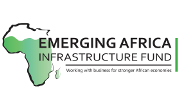Two Emerging Africa Infrastructure Fund (EAIF) renewable energy projects celebrated important milestones recently, one in Mozambique and one in Uganda. On August 10 Mozambique’s President, Filipe Nyusi, declared the 40-MW Central Solar de Mocuba (CESOM) solar power plant open.
EAIF loaned $24.9 million of the $76 million capital cost of the project. The energy being generated will be a catalyst for regional economic development in the north of Mozambique. CESOM is majority owned by the Norwegian energy business Scatec Solar, with Mozambique’s public electricity utility owning 25% and the Norwegian investment organization, Norfund, holding 22.5%.
In Uganda, on August 7 the 14-MW Kikagati hydropower station reached financial close. The first tranche of the funding has been released to the Kikagati Power Company (KPC), which will own and operate the plant when construction is complete. The Kikagati hydropower station is being built on the border between Uganda and Tanzania.
The financial close of the $54 million debt finance package for the Kikagati hydro-electricity station brings closer a new power source that will be equally shared between Uganda and Tanzania. The plant is located on the Kagera River, which is on the border between the two nations. 100% of the energy generated by KPC will be bought by the Uganda Electricity Transmission Company Limited, Uganda’s single-buyer and transmission company, which will then sell half the energy on to Tanzania.
EAIF, which is a PIDG company, specializes in providing high value long-term loans to private sector infrastructure projects in Africa. It draws its funds from the governments of the UK, The Netherlands, Sweden and Switzerland and private banks and financial institutions.
EAIF Executive Director, Emilio Cattaneo, said “CESOM is our first renewable energy project in Mozambique. Kikagati hydro power station is the tenth renewable energy plant EAIF has supported in Uganda. EAIF was a pioneer in financing private sector renewable energy projects in Africa. We are helping companies and countries stimulate long-term economic development impact on business growth, jobs and skills and contributing to weakening the grip of poverty on communities.”

